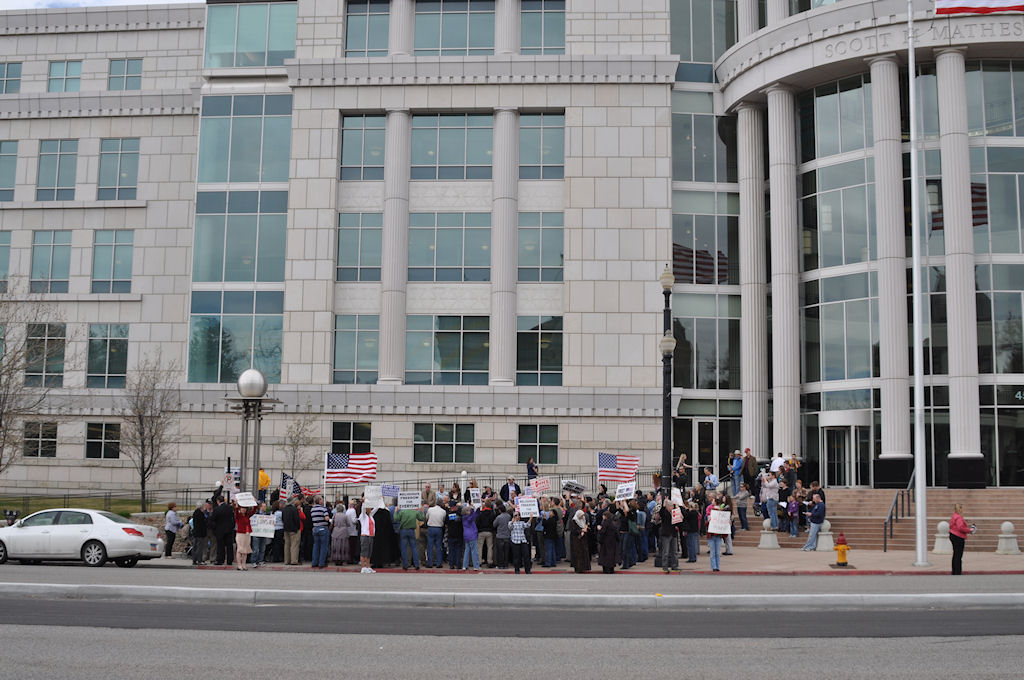Last week, David Buer of Sutherland dropped a post about how Sutherland is leading the way by supporting socialization of health care through a Health Compact.
So, I decided to write another letter to Sutherland challenging the group to a meeting about real free market health care reform. I've been working since 2008 trying to get groups about real free market reform. None will.
Sutherland wants health care socialized through a State Compact that they can influence. So, my guess is that, once again, I will receive absolutely no response from a letter or contact. Here goes
Dr. Mr. Buer,Well, that is the first draft of the letter. I will hone it a little bit and send it off on Monday. I would love to give my presentation on free market health care reform to any group of patriots looking for way to preserve the American experiment in self rule.
The Sutherland Institute claims to support free market health care solutions.
If Sutherland actually is interested in real free market health care reform; you might enjoy a presentation I've developed called the "Medical Savings Loan."
The goal of my presentation is to build, from the ground up, a health care plan around Medical Savings Accounts.
This approach is different from tacking a savings account to a high deductible insurance policy as an afterthought.
The goal of the project is to create a viable alternative to insurance. Creating a viable alternative to insurance destroys the justification for insurance mandates. (Conversely, the insurance mandates are premised on the false assumption that insurance is the only possible way to fund health care. If this assumption is false, PPACA is false.
My presentation starts with the assertion that "Those who can self-fund their care, should."
Let's say a person has a job with a $40,000 salary and gets a $10,000 health plan. That person's income really is $50,000 a year. Over a 40 year period the person would have earned $2,000,000.00 and had $400,000 put into health care. $400,000 can buy an awful lot of care. This would be especially true of the person held the pursestrings to his own care.
The Medical Savings and Loan uses a combination of savings accounts and loans to help people who can self-fund their care achieve that goal. With these people moved off the table, we will create a generously funded grant system for people who cannot self fund their care.
To administer the program I create a new position called the Health Care Advocate. The advocates replace insurance agents and claims adjusters.
The goal of the advocate is to help clients understand and save for expected health expenses. The advocates will keep records about clients' health and income experience. The advocate will also help clients find care providers and negotiate medical expenses. The advocates will approve loans and, if the client has unusually high expenses of unusually low income, the advocate will seek grants on behalf of their clients.
With the same amount of money as insurance, the Medical Savings and Loan will be able to fund more care than the insurance company.
The big differences between the Medical Savings and Loan and insurance are:
With this basic model in place, we can now raise the observation that the problem in health care rises from the use of group funding of individual consumption.
- the clients get to keep their money,
- the clients negotiate for care and use direct pay
- any funds transfers to people who need additional assistance is openly acknowledged as grants.
With this very simple model in hand, I can destroy all of the justifications used to push ObamaCare through the house.
Most of the problems we face in health care are the result of using group funding for individual consumption. Restoring the concept of self-funded care will restore balance.
You may have noticed that I did not mention government in this plan. It is not a government health care plan. It is a different business model for financing health care.
If Sutherland Institute was legitimately interested in free market health care reform, the institute would discuss true free market alternatives to insurance like the Medical Savings and Loan.
Sincerely Kevin Delaney
(contact form)
I really hate this game where Conservatives use free market rhetoric to get power. Once in power they seek economic centralization. True free market health care reform would save this nation. But conservatives simply will not discuss real reform. If you are upset at this game, feel free to yell at Sutherland. If enough free marketeers yell at them the might respond.
